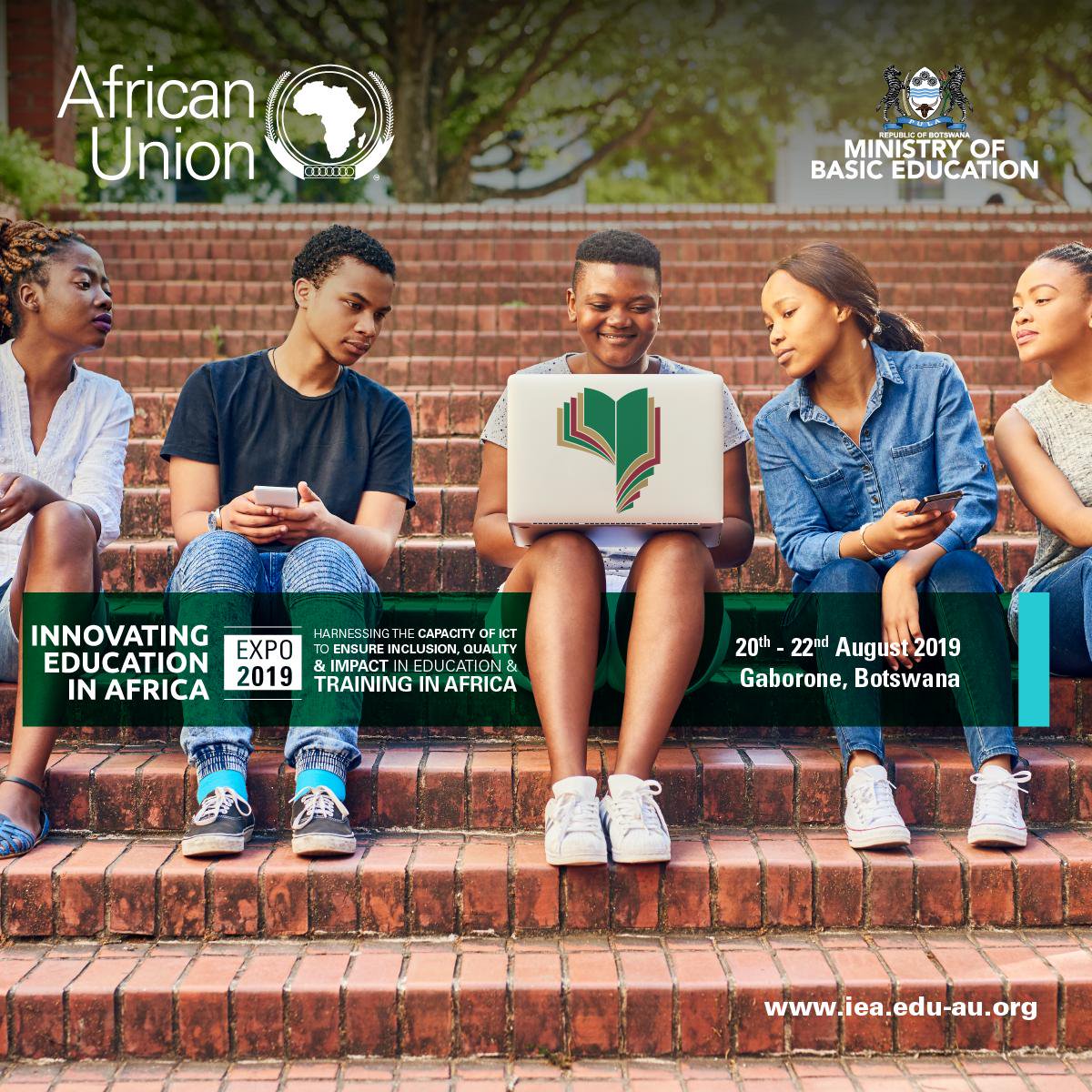IEA Expo 2019: Harnessing ICT capabilities for improved access, quality of education in Africa
The 2019 Innovating Education in Africa (IEA) themed: “Harnessing the Capacity of ICT to Ensure Inclusion, Quality and Impact in Education and Training in Africa,” showcased practical social and technological innovations that could enhance people`s access to quality and inclusive education in Africa

According to a UNESCO Institute for Statistics (UIS) – the institution responsible for tracking progress towards achieving the UN Sustainable Development Goal 4 (Quality Education) – report, about 263 million children and youths are out-of-school, worldwide. And Africa is the continent with the highest figures of out-of-school children: over one-fifth of children between the ages of 6 and 11 as well as one-third of children between the ages of 12 and 14 are out of school on the continent. Moreover, almost 60% of children between 15 and 17 years old in sub-Saharan Africa are not enrolled in school.
Although access to quality and inclusive education is considered a basic necessity of life and a fundamental human right, one that forms the bedrock of human empowerment, inclusive prosperity and progressive development, tens of millions of Africans including refugees and displaced persons lack access to education.
This sad reality of the state of access to quality and inclusive education in Africa underscores the need for ICT-based innovative and replicable education solutions that will guarantee inclusive and equitable quality education as well as promote lifelong learning opportunities for all on the continent, as enshrined in SDG4. UNESCO warns that “Without urgent action, the situation will likely get worse as the region [Africa] faces a rising demand for education due to a still-growing school-age population.”
As the lead UN organization for education, UNESCO believes information and communication technology (ICT) could complement, enrich and transform education for the better. It was also on this basis that the 2019 Innovating Education in Africa (IEA) Expo – a flagship event of the African Union Commission that seeks to showcase practical social and technological innovations aimed at enhancing access, quality, relevance and inclusion in education – was held between August 20 and 22 in Gaborone, Botswana.
The IEA Expo “Showcased Information and Communication Technology (ICT) based innovative education solutions from across the continent for possible support including further development and replication,” says a communique issued at the end of the two-day event which had in attendance the Vice President of Botswana HE Slumber Tsogwane and the AU`s Commissioner for Human Resources Science and Technology HE (Prof) Sarah Anyang Agbor, as well as ministers of education from 40 countries in Africa.
“The event also provided a platform for education practitioners, policy makers, private sector, civil society and other stakeholders to exchange experiences, policies and challenges in enhancing education and learning outcomes through ICT based innovation education,” added the communique.
Participants at the IEA Expo 2019 observed that the labour market in Africa demands for innovation, thus it requires significant knowledge and competences in Science, Technology, Engineering and Mathematics (STEM), as well as a strong background in ICT-based education. Consequently, it is important to integrate ICT in educational curriculums at all levels so as to enhance access and quality in education provision for meaningful contribution to entrepreneurship and employability of the youths in Africa.
As parts of efforts to build the knowledge competencies, skills, innovation and creativity of Africans required for employability in the labour market and also to develop a qualitative system of education and training, the AU launched the ten-year Continental Education Strategy for Africa 2016 -2025 (CESA 16-25). CESA 16-25 is a continental strategy that matches the 2016-2025 framework of the African Union 2063 Agenda, meets the Common African Position (CAP) on the Post-2015 Development Agenda.
Thus the Expo participants noted that this year’s theme: “Harnessing the Capacity of ICT to ensure Inclusion, Quality and Impact in Education and Training in Africa,” was aligned with Strategic Objective 3 of CESA 16-25, which perfectly resonates with the quest of innovating education. Amongst others, they also observed that innovation in education was imperative to the successful implementation of CESA 16-25, the Technical and Vocational Education and Training (TVET) Strategy for Africa as well as both the AU Agenda 2063 and UN’s SDGs.
Accordingly, the participants urged African governments to harness the capacity of ICT innovations in education for effective teaching and learning systems as well as to ensure inclusion, quality and impact in education and training in Africa. The 2019 IEA Expo communiqué also recommended the creation of facilities that will promote girls’ and women’s education at all levels, with a focus on Science, Technology, Engineering, and Mathematics (STEM) education as well as providing carrier guidance to create jobs for women in the applied sciences.
Other recommendations made by participants at the Expo were to do with establishing ICT-related vocational training centers for out-of-school girls in Africa; increased integration of ICT in school curriculum to enhance digital skills of African youths and also prepare them for the digital world and the Fourth Industrial Revolution (FIR). If implemented, these recommendations will go a long way in not only ensuring improved access to quality and inclusive education but also creating employment opportunities and addressing poverty and unemployment amongst youths on the continent.










